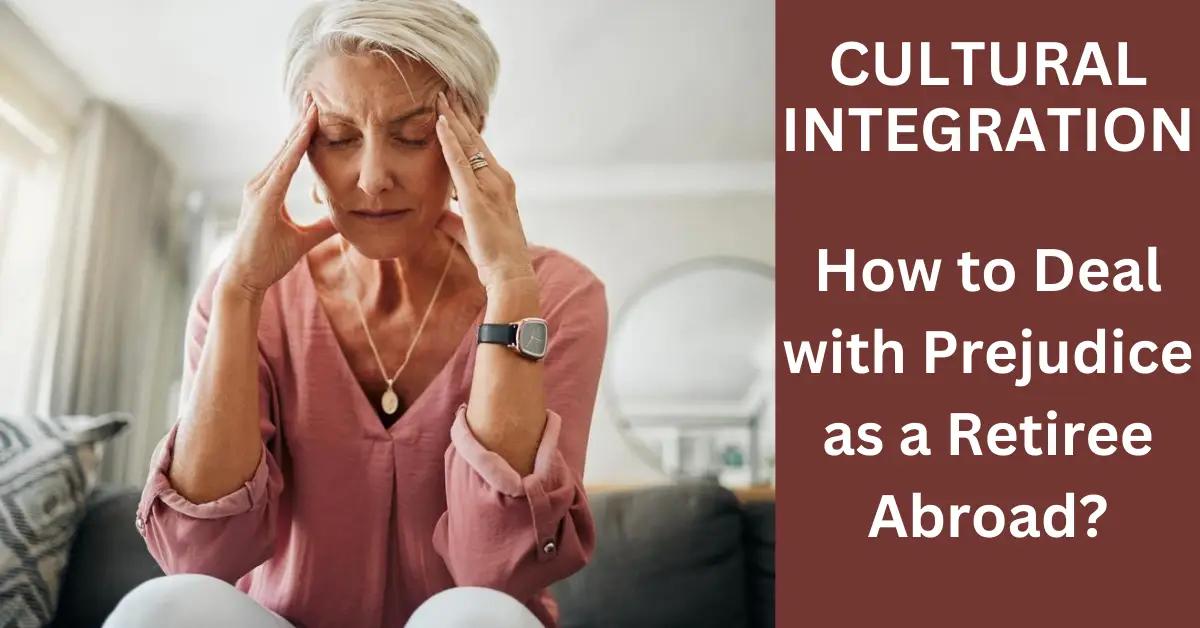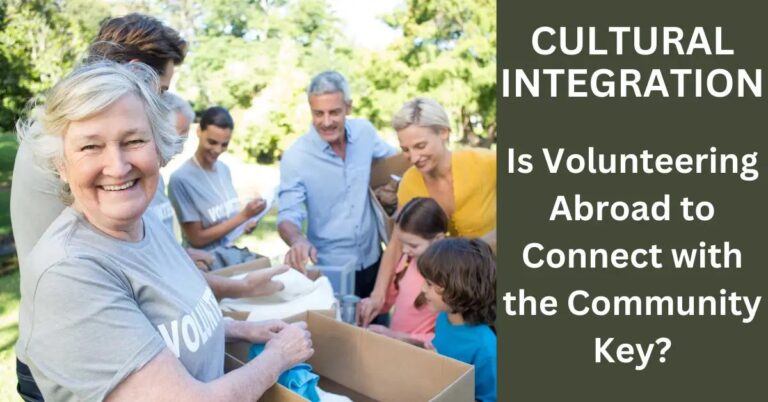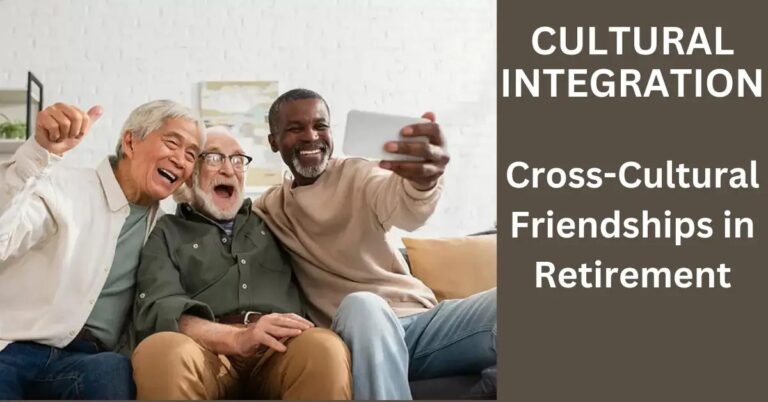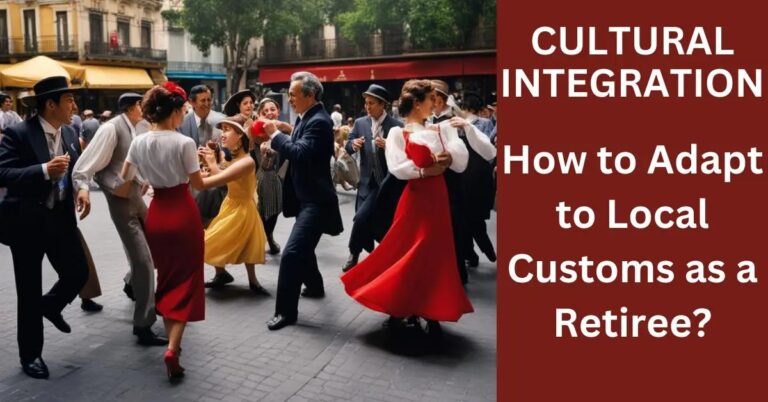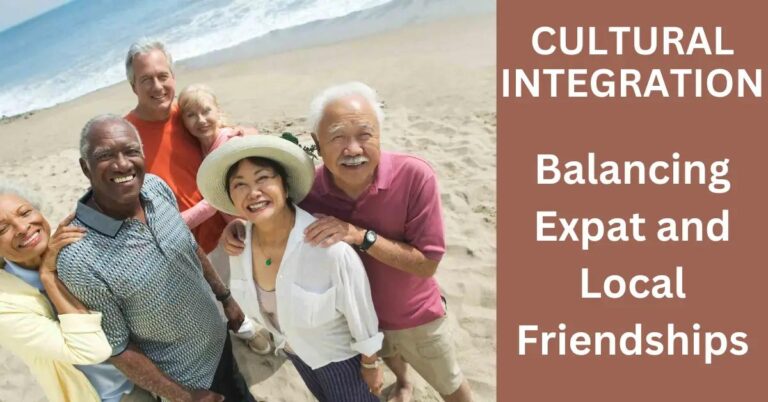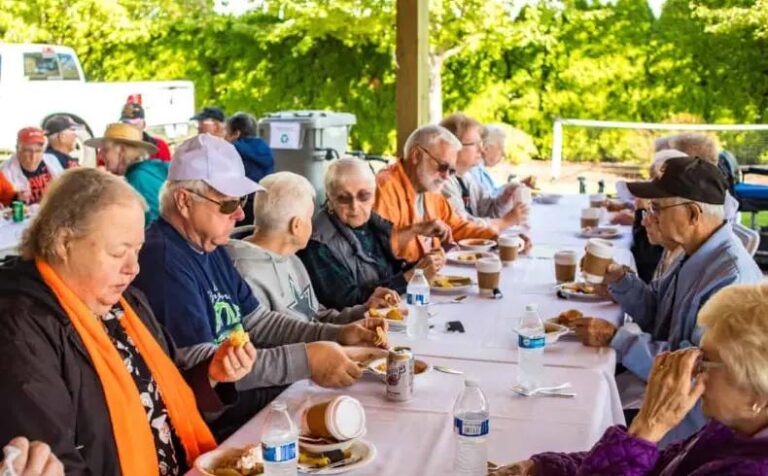TL;DR:
- Retirees abroad may face prejudice due to cultural misunderstandings.
- Sharing culture and participating in local activities can build connections.
- Retiree support groups lessen isolation and foster friendships.
- Documenting discrimination assists in addressing it legally.
- Positivity, education, and community support are key in dealing with bias.
- Cultural adaptation involves embracing local customs and attending sensitivity training.
- Overcoming stereotypes requires cultural sharing and volunteering.
- Building social networks can involve joining clubs, engaging in local events, or using online platforms.
- Language barriers can be tackled with courses, technology, and language exchanges.
- Researching visas, finances, and healthcare is essential for a smooth overseas retirement.
- Establishing local networks ensures support and connection.
Living abroad as a retiree can be enriching yet, at times, challenging. Facing prejudice in your new home may be daunting. How can you effectively deal with it and still enjoy your retirement paradise? In this guide, I will share insights on building cross-cultural friendships and fostering social connections. Let's explore practical strategies to combat discrimination, adapt culturally, and thrive in your new environment. So, let's turn those challenges into meaningful experiences together!
How to Deal with Prejudice as a Retiree Abroad?
Retiring in a new land can mean facing prejudice. Understanding its roots helps a lot here. People in your new home might not know much about your background. This lack of understanding can lead to bias. To eliminate bias and prejudice, start by explaining your culture to neighbors. I find that sharing traditions and stories builds connections.
Making cross-cultural friendships bridges differences. Invite locals over and share a meal from your home country. These moments foster bonds. Participating in local activities shows curiosity. Whether it’s a community event or festival, join in. These events help retirees build social connections abroad.
Retiree support groups can offer great help too. Many groups exist to help retirees settle in and make friends. They provide a sense of belonging and lessen feelings of isolation. Connections formed through these groups can become lifelong friendships.
It's also important to remain open and curious about the new culture. Engaging with the local community shows respect and opens doors. This leads to deeper understanding and less prejudice. Educating others around you is another strategy. Often, locals know little about the diverse backgrounds retirees bring.
Question: Which is the best country to settle after retirement? The best country depends on personal preferences. Factors include cost of living, climate, healthcare, and community. Some popular choices are Spain, Portugal, and Mexico. They offer affordable living and friendly atmospheres.
Lastly, sharing your culture can reduce any prejudice. Host events or join language exchanges to promote understanding. Keep learning and teaching about each other’s customs and values. This exchange enriches lives on both sides. Retirees can thus cultivate an enriching and inclusive community. These efforts don't just break down walls, they build bridges.
What are effective strategies for coping with discrimination as a retiree?
Document Experiences
When faced with discrimination, it's crucial to document each instance. Keep a record of dates, locations, and any witnesses. This can help if legal action becomes necessary. Writing down these experiences also allows reflection, giving a clearer perspective on recurring patterns.
Build Resilience
Staying positive is key. I've learned to focus on the joys of my new surroundings rather than negative moments. Support from friends or family can boost morale. Joining local groups is another way to feel connected and less isolated.
Educate and Inform
Combat bias by educating yourself and others. Understand how prejudice impacts expatriates. Discussing these issues openly with locals can foster understanding. Sharing personal stories might help break down barriers and misconceptions.
Seek Support
If discrimination becomes overwhelming, reach out for support. Many communities offer resources for expatriates facing bias. Legal counsel or an expatriate organization may provide guidance on seeking legal help or community support. Knowing your rights is always empowering.
Promote Elder Respect
In some cultures, respect for elders is deeply rooted. Embrace this and educate others where it's lacking. I found that participating in cultural exchanges helped promote understanding and respect among generations. An activity or event about elder wisdom can open dialogue and promote inclusiveness.
Final Thoughts
Through these steps, I've found that coping with prejudice as a retiree abroad is possible. It's about resilience, education, and connection. Stay informed, seek support, and promote positive change. It’s a journey worth taking to enjoy this chapter of life.
How can retirees adapt culturally in their new environment?
Adapting to a new culture can feel like wandering through unknown paths. It is crucial to embrace local customs for successful cultural adaptation for retirees. Each place has its own way of life, and being aware of these can prevent misunderstandings. To start, learn about cultural norms and practice avoiding cultural faux pas. Does this require excessive wealth? No, it just needs a keen eye and open heart.
Attending cultural sensitivity training can provide deeper insights. These sessions teach retirees the importance of respecting differences while understanding local traditions. Training creates awareness that bridges gaps between foreign retirees and locals.
Engaging in local festivities is another great way to deepen cultural ties. Celebrating local holidays helps in feeling part of the community. Such events encourage mutual grace as retirees learn through experience. This involvement encourages discussions and connections, making you feel more at home.
Practicing cultural humility and curiosity also aids adaptation. Being humble means acknowledging that you don't know everything about the new culture. A curious mindset invites learning and growth, helping you become part of the local tapestry over time. It helps avoid assumptions and embrace rich local histories.
Engage in expatriate integration strategies that match your personal interests. These strategies could include joining local clubs or groups. Whether it’s a book club or a sports team, integrating into social circles helps in making valuable friendships. It combats feelings of isolation, turning foreign soil into familiar ground.
Which is the best country to settle after retirement? The answer is personal and complex. It depends on preferences, lifestyle, and priorities. Countries like Portugal, Spain, or Mexico are popular. They offer affordable living and vibrant culture but the choice remains personal, fitting your own lifestyle dreams and retirement aspirations.
In What Ways Can Retirees Overcome Stereotypes as Expats?
To eliminate bias and prejudice, begin with sharing your personal stories. These stories help humanize stereotypes and open eyes to our shared humanity. Volunteering also plays a big role in overcoming stereotypes. When you get involved in community projects, people see beyond the label of “foreign retiree” and recognize your contributions.
Educating locals about foreign retirees is another key step. Many stereotypes arise from myths and misinformation. By sharing accurate facts and stories, you dispel myths. This encourages a fresh, more accurate understanding.
Bridging cultural gaps is vital. Strengthen intercultural bonds by learning new cultural perspectives. Attend local events and engage in cultural exchanges. This builds trust and respect, which are foundational for dispelling stereotypes.
Encouraging intercultural friendships helps combat stereotypes. When friendships form across cultures, prejudices break down. Invite neighbors to join in social activities, such as a meal or a local concert. These connections foster a welcoming atmosphere and promote cross-cultural understanding.
When you understand different backgrounds, you build empathy and mutual respect. This is key to overcoming stereotypes as an expat. Engage actively in fostering inclusive communities abroad. Learn and share with others about the enriching diversity that expats bring to foreign lands.
To further expand your understanding, consider local workshops or informal language exchanges. Not only do these activities increase awareness, but they also improve local relations. Remember, the more connections you make, the easier it gets to break down walls of prejudice.
In essence, breaking stereotypes involves active participation in your local community. Whether through stories, volunteering, or creating friendships, each effort counts toward a harmonious relationship. This approach enriches your personal experience and builds a bridge to a more inclusive world for all.
How can retirees manage loneliness and foster connections abroad?
Many retirees find themselves wondering how to build new social networks after moving abroad. I'm no stranger to feeling alone in a new place, but I've learned some tricks. Did you know about 40% of Americans dream of retiring overseas? That's a big number, meaning you're not alone on this journey.
One of the best strategies is joining local clubs and social groups meant for retirees. These groups help you meet new people who understand your stage of life. Each meeting brings a chance to learn more about the culture and forge bonds with other retirees.
Plotting your path to connection? Don't forget about the power of online platforms. Websites and social media groups are great for meeting fellow retirees. Whether you're discussing hobbies or planning meet-ups, technology shrinks the distance between you and potential friends.
Community events and cultural activities also offer fantastic opportunities. Participating not only keeps you engaged but also lets you grow closer to the locals. Through shared experiences, you break down barriers and make meaningful connections.
Consider trying a multigenerational living arrangement too. Living with younger generations can enrich your life and theirs. It offers a way to share wisdom while learning fresh perspectives in return.
Lastly, building shared interest groups can be a lifesaver. Think about what fascinates you. Gardening, cooking, or art? Start or join a local group focusing on what you love.
Overseas retirement can lead to new challenges, including loneliness. But with these strategies, you're not just surviving—you’re thriving in your new environment.
How Can Retirees Handle Language Barriers While Living Abroad?
Language barriers can feel like a big wall. You might wonder, How do I connect with locals? To break this wall, start by taking language courses made for retirees. They fit your pace and focus on what you need daily. I joined such a course when I moved overseas, and it helped a lot.
Next, practice your new skills with everyone—store clerks, neighbors, even strangers at a café. I found that most people are patient and love when you try to speak their language. Daily chats improve your skills fast.
Use technology to support your learning. Language apps can be like a helpful teacher in your pocket. I have used free apps that guide you with words and simple phrases. Over time, these apps made new words easy to remember.
Another helpful approach is engaging in language exchange programs. They are like a friendly swap: you teach someone your language, and they teach you theirs. I made lasting friends through these programs. We laughed at each other's mistakes and learned together.
Understanding local etiquette also helps in communication. Learn simple things like a polite greeting or how to ask for help. Etiquette gives you confidence and shows respect for their culture. I learned that a simple bow or handshake can open many doors.
When facing prejudice, being open and joining the local culture eases tension. Language connects us all, and trying to speak even a little can break barriers. By doing these activities, you will see less bias and more friendly smiles. Handling language barriers as a retiree can be exciting and rewarding, as every new word is a step closer to your community.
What steps can retirees take to ensure a positive overseas retirement experience?
Before retiring abroad, research each country's retirement visas and policies. Understand the rules first. Most countries offer special visas, but each has unique requirements. Make sure you qualify before making plans.
Learn your rights as a retiree in your chosen country. Each nation has its laws for expats. Be prepared to navigate these legal landscapes. This knowledge will protect you and ensure a smooth transition.
Plan your finances carefully, including taxes. Do you pay US taxes if you retire abroad? The answer is yes, you are likely subject to US taxes on your worldwide income. Understanding these rules helps avoid surprises. Consider consulting a tax expert who understands international retirement law.
Healthcare is another key area. Accessing healthcare services as a retiree abroad is crucial. Research the country's healthcare system, the cost, and how you can benefit. Some countries have agreements with the US for convenient healthcare access.
Do not forget to create emergency and support networks. Establish connections with local expats or communities. In emergencies, these networks are your support. They also help with emotional and social connections, making expatriate life less daunting.
How long can a retired US citizen stay out of the country? As long as you maintain financial obligations, you can live abroad indefinitely. You only need to fulfill legal and visa requirements of both the US and your new home.
In conclusion, retirement abroad can be fulfilling if you plan well. By tackling visas, rights, finances, healthcare, and network building, you pave the way for a rewarding experience. This preparation helps reduce challenges and makes life overseas enjoyable. Understanding these core areas is vital for a happy life abroad.
Conclusion
Retiring abroad can be rewarding, but prejudice and bias pose real challenges. Building friendships, engaging in local activities, and sharing cultural knowledge help bridge divides. Retirees can document experiences, build resilience, and seek support for discrimination issues. Understanding customs through cultural learning and participation aids in adaptation. Sharing stories and educating locals dispel stereotypes and foster inclusivity. Lastly, connecting with community groups and joining language classes enhances belonging and communication. Through these steps, retirees can thrive, finding joy and acceptance in their new homes.

